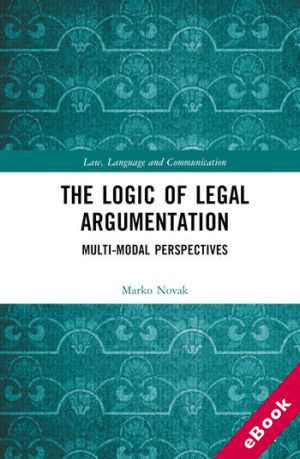
The device(s) you use to access the eBook content must be authorized with an Adobe ID before you download the product otherwise it will fail to register correctly.
For further information see https://www.wildy.com/ebook-formats
Once the order is confirmed an automated e-mail will be sent to you to allow you to download the eBook.
All eBooks are supplied firm sale and cannot be returned. If you believe there is a fault with your eBook then contact us on ebooks@wildy.com and we will help in resolving the issue. This does not affect your statutory rights.
Multi-modal argumentation with its logical, emotional, visceral and kisceral arguments is an important addition to logical argumentation, especially when real-life situations are considered. It does not discard logic but adds other modes of argumentation to complement it, to emphasize the realistic environments of communication. In this sense, the multi-modal theory is important for the area of legal argumentation, where even in the reasoning of judicial decisions traces of a flesh-and-blood personality, who decided the case and wrote the reasons, can be found.
This book presents a comprehensive analysis of this informal logic in legal argumentation and its practicality within the law. It argues that by building on the dialectical and rhetorical models of legal argument, the former being important for clear cases while the latter for unclear ones, the multi-modal theory of legal argumentation brings together logic and psychology in a holistic or integral perspective. The approach is not only descriptive, identifying the traces of alternate arguments in judicial decisions, but is also normative, presenting the criteria for evaluation that multi-modal arguments need to face to attain validity in the legal context.
The work will be of interest to academics and researchers in the areas of Legal Theory, Legal Linguistics, Philosophy of Law, and Communication Studies.